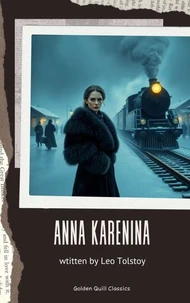In "The Meaning of the Russian Revolution, " Leo Tolstoy delves into the profound social and political upheaval that transformed Russia in the early 20th century. Written in a conversational yet incisive style, the book interweaves philosophical reflections with Tolstoy's moral concerns, examining the potential for true social change rooted in justice and nonviolence. This work stands as a critical response to the limitations of revolution, highlighting the ethical implications of violence and the importance of moral integrity amidst chaos and disorder.
Tolstoy's insightful analysis not only critiques the political landscape but also delves into the spiritual aspirations of the Russian populace during this tumultuous period. Leo Tolstoy, renowned for his literary masterpieces such as "War and Peace" and "Anna Karenina, " spent much of his life grappling with existential questions and moral dilemmas. His frequent engagement with ideas of nonviolent resistance and social justice, coupled with his own experiences of disillusionment with authority, undoubtedly influenced his perspective in this work.
Tolstoy's exploration of the Russian Revolution emerges from his deep-seated belief in the transformative power of love and compassion as opposed to violence. This book is indispensable for scholars and readers interested in Russian history, social justice, and the moral implications of revolutionary thought. Tolstoy's unique philosophical approach invites readers to reflect on the nature of change, making it a timeless work that resonates even in contemporary socio-political discussions.
An insightful read, it is essential for anyone wishing to understand the complexities of revolution and the enduring quest for a more just society.
In "The Meaning of the Russian Revolution, " Leo Tolstoy delves into the profound social and political upheaval that transformed Russia in the early 20th century. Written in a conversational yet incisive style, the book interweaves philosophical reflections with Tolstoy's moral concerns, examining the potential for true social change rooted in justice and nonviolence. This work stands as a critical response to the limitations of revolution, highlighting the ethical implications of violence and the importance of moral integrity amidst chaos and disorder.
Tolstoy's insightful analysis not only critiques the political landscape but also delves into the spiritual aspirations of the Russian populace during this tumultuous period. Leo Tolstoy, renowned for his literary masterpieces such as "War and Peace" and "Anna Karenina, " spent much of his life grappling with existential questions and moral dilemmas. His frequent engagement with ideas of nonviolent resistance and social justice, coupled with his own experiences of disillusionment with authority, undoubtedly influenced his perspective in this work.
Tolstoy's exploration of the Russian Revolution emerges from his deep-seated belief in the transformative power of love and compassion as opposed to violence. This book is indispensable for scholars and readers interested in Russian history, social justice, and the moral implications of revolutionary thought. Tolstoy's unique philosophical approach invites readers to reflect on the nature of change, making it a timeless work that resonates even in contemporary socio-political discussions.
An insightful read, it is essential for anyone wishing to understand the complexities of revolution and the enduring quest for a more just society.

 , qui est-ce ?
, qui est-ce ?